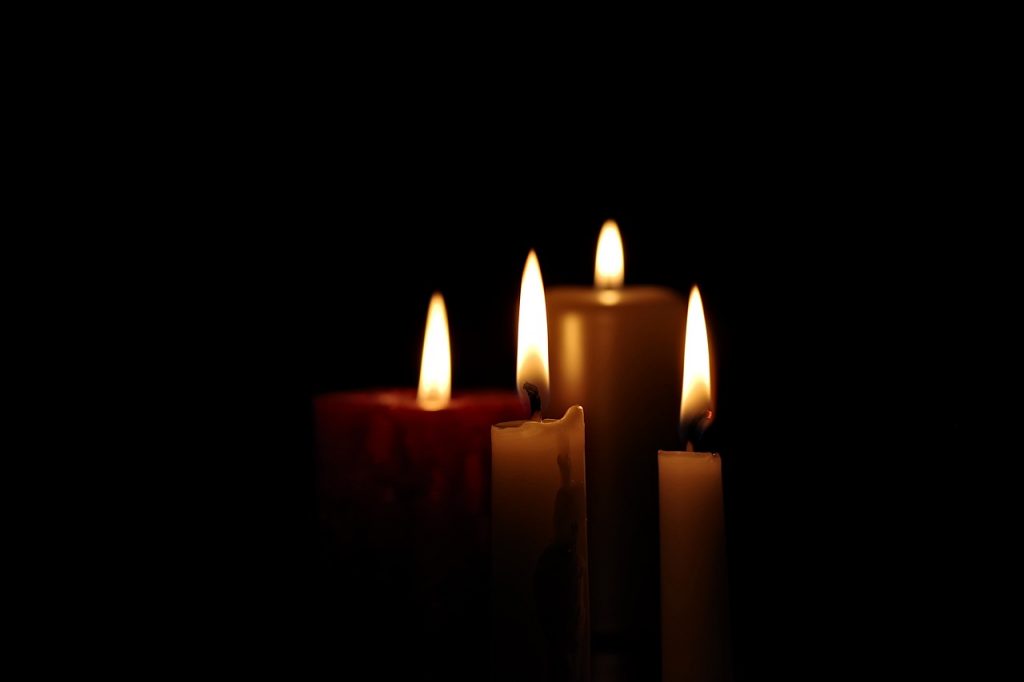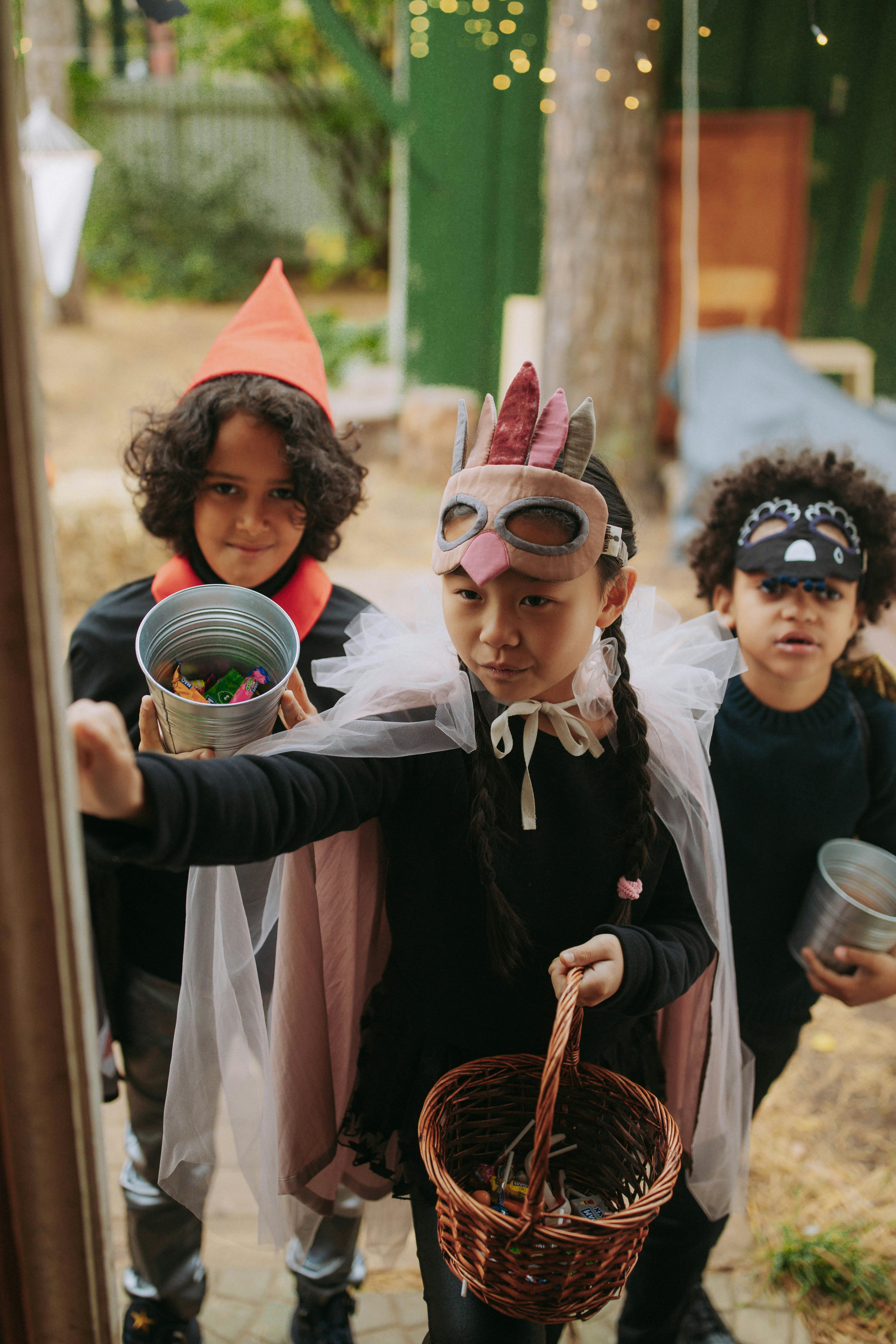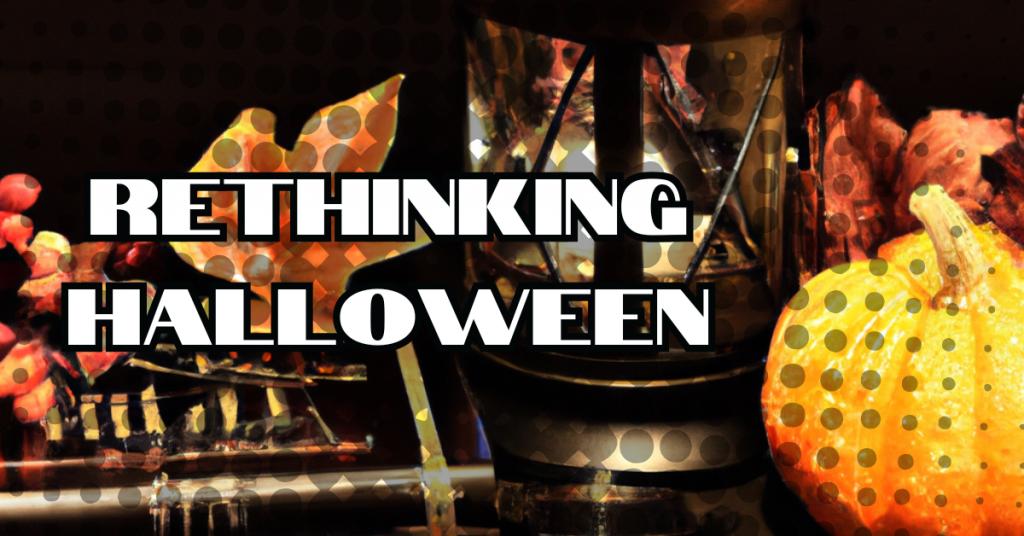Halloween is one of the most celebrated holidays in our culture, filled with costumes, candy, and spooky decorations. But as Christians, we need to stop and ask ourselves: Should we really be celebrating this holiday? What’s behind the masks, the haunted houses, and the ghost stories? Are we honoring God by participating, or are we unknowingly opening doors to spiritual dangers?
At Crescendo, we believe in being bold and authentic in our faith, even when it challenges cultural norms. So let’s take a deeper look at Halloween and ask some important questions. What does the Bible say about it? How should we, as followers of Christ, navigate this holiday?
The Origins of Halloween: More Than Just Fun and Games
Before diving into whether Christians should celebrate Halloween, we need to understand where it comes from. Halloween wasn’t always about cute costumes and candy. Its roots go back to ancient Celtic traditions, particularly a festival called Samhain. Samhain marked the end of the harvest season and the beginning of winter, a time when the Celts believed the veil between the living and the dead was thinnest. They thought spirits could cross over into the world, and they lit bonfires and wore costumes to ward off evil spirits.
When Christianity spread to the Celtic lands, the church tried to replace pagan festivals with Christian ones. November 1st became All Saints’ Day (also called All Hallows), a day to honor Christian saints. The night before was called All Hallows’ Eve, which eventually became Halloween. Even though some of the traditions changed, Halloween never fully lost its connection to its pagan, occult roots.

What Does the Bible Say About Halloween?
The Bible may not mention Halloween specifically, but it has plenty to say about the things associated with it—witchcraft, spirits, and the occult. Here are a few verses that stand out:
- Deuteronomy 18:10-12 warns against practices like divination, sorcery, and consulting the dead, saying, “Anyone who does these things is detestable to the Lord.”
- Ephesians 5:11 tells us to “Have nothing to do with the fruitless deeds of darkness, but rather expose them.”
- 1 Peter 5:8 warns us to be alert and sober-minded, because our enemy, the devil, prowls around like a roaring lion, looking for someone to devour.
When we participate in Halloween, we may not be consciously engaging in witchcraft or celebrating evil, but we are taking part in something that has deep spiritual ties to darkness. The Bible calls us to stay far from those things, not to entertain or celebrate them.
What Are We Really Celebrating?
Many people argue that Halloween is harmless—it’s just about fun, costumes, and candy. And while that’s what it may look like on the surface, we have to ask ourselves: What are we really celebrating?

Even if we don’t personally believe in the occult, Halloween’s symbols and activities are rooted in fear, death, and the supernatural. Think about it: haunted houses, ghosts, witches, skeletons, and zombies are all part of the Halloween experience. When we participate in these things, are we glorifying the God of life, light, and truth? Or are we allowing darkness to have a place in our hearts and homes?
As Christians, we are called to be set apart from the world (Romans 12:2). That means we don’t just go along with cultural traditions without questioning whether they align with our faith. We are called to shine the light of Christ, not blend into the shadows of the world’s traditions.
The Spiritual Dangers of Halloween
One of the biggest concerns for Christians celebrating Halloween is the spiritual danger it poses. While it may seem like just another holiday, Halloween can actually open doors to the spiritual realm in ways we don’t realize. By participating in activities that have their roots in the occult—whether it’s dressing up as witches or celebrating fear and death—we could be allowing the enemy a foothold in our lives.
The Bible is clear: spiritual warfare is real. In Ephesians 6:12, Paul tells us, “For our struggle is not against flesh and blood, but against the rulers, against the authorities, against the powers of this dark world and against the spiritual forces of evil in the heavenly realms.” We need to be aware that the enemy is always looking for ways to deceive and entangle us.
By engaging in Halloween traditions, we might be opening ourselves and our families to influences that pull us away from God. It may seem innocent on the surface, but there are real spiritual consequences to celebrating something that has its roots in darkness.
Alternatives to Halloween: How to Honor God
If we’re going to say “no” to Halloween, what do we do instead? Do we lock ourselves in our homes with the lights off, ignoring the trick-or-treaters? Not at all!
As Christians, choosing not to celebrate Halloween doesn’t mean hiding away or pretending the holiday doesn’t exist. In fact, Halloween presents a unique opportunity for us to shine the light of Christ in a very practical way. One powerful alternative to celebrating Halloween is using it as a night for evangelism and community outreach. Instead of participating in the dark themes of the holiday, we can be intentional about spreading the love of Jesus to those around us.
Here’s how we can transform Halloween from a celebration of fear and darkness into an opportunity to share the gospel and be a beacon of light in our communities:
Hand Out Candy with Gospel Tracts
For many families, trick-or-treating is the main event on Halloween. Kids excitedly go door to door, gathering candy and enjoying the festivities. While others are focused on costumes and candy, Christians can use this as an opportunity to share the message of hope and salvation.
One simple yet impactful way to do this is by handing out small gospel tracts along with candy. Gospel tracts are small pamphlets that explain the message of Jesus and His gift of salvation in an easy-to-read format. You can find tracts specifically designed for children, with colorful graphics and simple language. When trick-or-treaters come to your door, hand them candy along with a gospel tract that introduces them to Jesus in a non-threatening and friendly way.
This small gesture can plant seeds of faith in a child’s heart, and it also shows their parents that there’s something different about your household. Instead of merely blending into the holiday, you’re using it to point others to Christ.
Boldly Standing for Christ
Choosing not to celebrate Halloween can feel like a tough decision, especially when everyone around us seems to be enjoying it. But remember, as Christians, we are called to be bold and set apart. Just because something is popular in culture doesn’t mean it’s right for us.
At Crescendo, we believe in taking small steps with loud faith. It may seem like a small decision to opt out of Halloween, but those small steps make a big difference. They speak volumes about who we are as followers of Christ and what we stand for. We are choosing faith over fear, light over darkness, and truth over tradition.
In a world that celebrates fear, death, and darkness, we are called to be the voice of life, love, and truth. So as Halloween approaches, let’s be intentional about how we engage with it. Let’s make choices that honor God and reflect the light of Christ in all we do.
Conclusion: Is It Worth the Risk?
Ultimately, the decision of whether or not to celebrate Halloween is a personal one. But it’s crucial to consider the spiritual implications of our actions. As followers of Christ, we are called to stand out, to question the traditions of the world, and to align our lives with God’s Word.
Halloween may seem like harmless fun, but when we peel back the layers, we see that it’s deeply rooted in darkness. The Bible warns us to have nothing to do with such things. As believers, we should be wise, discerning, and bold in our faith. Let’s choose to celebrate the things of God, not the things of this world. And in doing so, we’ll reflect His light in a world that desperately needs it.

